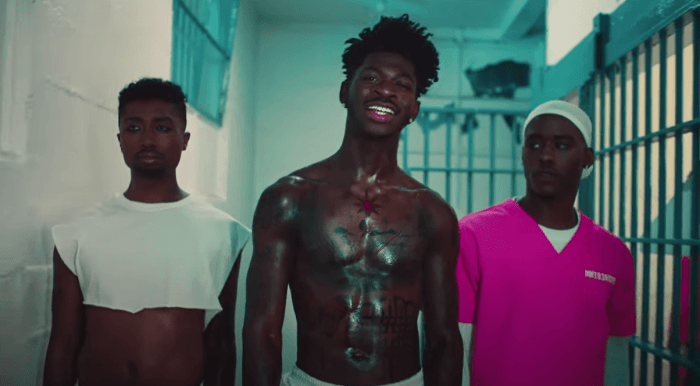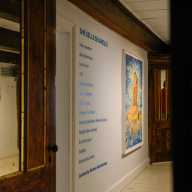This month, we are taking a closer look at music from Lou Reed, Christine and the Queens, and Special Interest:
Lou Reed | “Words and Music 1965” | Light in the Attic | “I’m So Free: The 1971 RCA Demos” | RCA
These two compilations of unreleased music by the late bi rock musician Lou Reed bookend his tenure with the Velvet Underground.
“Words and Music, 1965,” the first volume in a series of Reed demos from Light in the Attic, captures him in Dylan-wannabe folksinger mode, with future Velvets member John Cale contributing guitar and backing vocals, while “I’m So Free: The 1971 RCA Demos” also offers us Reed with acoustic guitar in hand, preparing to record his first solo album. Neither is a real revelation, but “I’m So Free” is much more listenable. “Words and Music, 1965” reveals just how much work future Velvet Underground songs like “Heroin” and “I’m Waiting for the Man” needed to achieve the aura of danger. The album does have a few moments of interest, like a fine version of “Pale Blue Eyes” and a radically stripped-down take on “Wrap Your Troubles In Dreams,” performed by Nico on her 1967 solo album “Chelsea Girl.” But even these, as well as the entirely unreleased songs, are no more than curios.
“I’m So Free” sheds a greater light on an oft-ignored period of Reed’s career. While his solo career would soon take off with “Transformer” and “Berlin,” his first solo album consists of new recordings of then-unreleased Velvet Underground songs. “I’m So Free” widens the focus by including early versions of songs he’d record over the next few years. “Kill Your Sons” was inspired by the electroshock treatment his parents forced him into when he was a teenager to try and “cure” his bisexuality — his demo has completely different lyrics from the 1974 studio version. A personal reminiscence of the damage done by forced treatment in mental hospitals began as an anti-war protest song that put “I’ll kill all the yellow faggots, if need be with my own hands” in Richard Nixon’s mouth. As early as 1967, Lou Reed’s streetwise persona started to get set in stone. Both of those compilations have the virtue of showing us a funnier, more informal version of the singer.
Christine and the Queens | “Redcar les adorable étoiles” | Because Music | Nov. 11th
“Redcar les adorable étoiles,” the latest album by one-man band Christine and the Queens, is the prelude to a live theater performance. His videos have always incorporated dance, so it makes sense that he would expand his work to a larger stage. The connection between Chris, the person behind Christine and the Queens, and the personae he’s adopted hasn’t always been clear, but last summer, he began identifying publicly as a trans man.
His previous music incorporated anguished reflections on suicidal ideation, domestic violence, and the existence of God. His videos have elaborated on these themes; in “The Walker,” he plays a man bruised by his lover walking around a small French town, finding solace in the company of a cow as people merely stare at him. “Redcar les étoiles” feels equally dark, but veers between boldly theatrical drama and a colder, more distant electronic sound. It departs from the American pop and R&B influences of his previous album. The lyrics are entirely in French aside from a sentence here and there — English phrases like “I’ll teach you a game, I’ll teach you” and “my wife till I die” stand out — which forces Anglophone listeners to concentrate harder on melody and texture. To pin it down, “Redcar les étoiles” sounds more European. While it’s still a pop album, it can get spacey. The austerity of “rien dire” makes it feel spookier. Both keyboards and Chris’ vocals are heavily processed with reverb. Although the album’s instrumentation all sounds synthetic, its tones are lush and precise — take the wash of strings and electric piano over a mellow funk groove on “Combien de temps” — and the mix is loud and punchy while avoiding excessive compression. While “Redcar les étoiles” doesn’t have the immediate impact of Christine and the Queens songs like “It Doesn’t Matter” and “La Vita Nuova,” it uses ‘80s sonics to create something new, packing quite a sting.
Special Interest | “Endure” | Rough Trade | Nov. 4th
After releasing two albums themselves, the all-queer New Orleans band Special Interest finally signed to a larger label. They’ve always had a somewhat unusual style grounded in punk: foregoing a live drummer, keyboardist Ruth Mascelli also handles drum programming. Especially in its first half, “Endure” includes their most accessible music to date, but it uses that approach to make radical politics go down more smoothly.
Often, Special Interest resemble the kind of dance-punk Rough Trade itself released in the early ‘80s. But just as the third wave of post-punk has been more musically adventurous and politically provocative than the genre’s 2000s revival, Special Interest aren’t telling anyone to head to the dancefloor to wash their cares away. “Concerning Peace,” inspired by 2020’s Black Lives Matter protests, rages against performative politics and calls for justice over non-violence: “compromised modern activism’s soul purpose is individual upward mobility/and the profit off death.” The sound is fuller and thicker than their indie albums, but singer Alli Logout’s voice isn’t always in the forefront. (On “Concerning Peace,” she’s barely audible.) Special Interest reflect the damage of oppression with an embrace of chaos, where instruments melt into each other.
“LA Blues” closes out the album with the longest song the band’s ever released; taking its title from the Stooges’ 1970 free jazz-meets-proto punk freakout, it moves the reference point from Los Angeles to Louisiana and describes the struggles of the band’s friends. It suggests a new direction for the band, with slower and heavier music supporting Logout’s soulful vocals, and honoring their friends’ struggles, including early deaths, with the refrain “Why God why/Why would you take them from that way?” Amidst all the album’s tough talk, it finally offers new possibilities: “The end of the world is just a destination.”





































